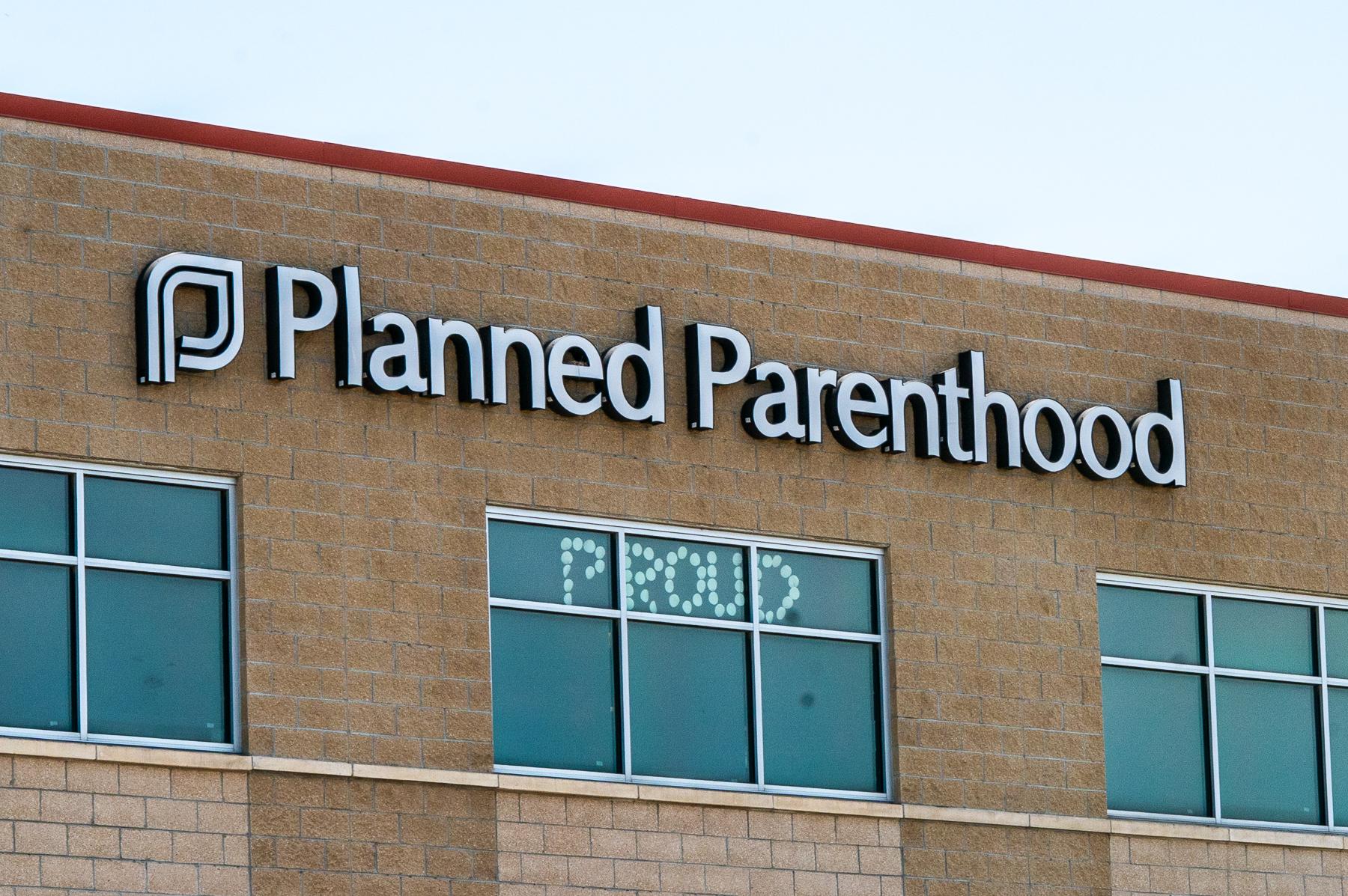
 A lot of attention and a lot of money are focused on the school board races in Denver. November's election will, in many ways, determine how the state’s largest district moves forward.
A lot of attention and a lot of money are focused on the school board races in Denver. November's election will, in many ways, determine how the state’s largest district moves forward.
Denver just surpassed Jefferson County Public Schools as Colorado’s largest district. Ryan Warner speaks with CPR education reporter Jenny Brundin about the Denver races and state wide mill levy ballot measures. A transcript of that conversation is below.
Ryan Warner: Let’s start with some lively school board elections. Denver’s is quite contentious-- 4 out of 7 seats are up for grabs. One is a city-wide seat, so all Denver residents will see that one on their ballot.
Jenny Brundin: Yes, that’s right.
RW: Why is Denver in the spotlight?
JB: Denver has a national reputation for being a hotbed of so-called education reform. There are some serious differences out there about how schools should be run and organized. The current board has enthusiastically embraced charter schools. Those are public schools that are independently run by a company or non-profit group, like the KIPP network of charter schools.
The district’s also encouraged charter schools to set up on neighborhood school campuses -- that’s led to some controversy, such as setting up a STRIVE charter school on North High School’s campus.
It’s also shut down a couple dozen low-performing schools, which, at the time caused anger among some, and others applauded it. For example, Montbello High School is being phased out. And – the district has adopted a rigorous scorecard for schools. It grades schools on test scores and parent satisfaction. Four of the seven existing board members have sided with the district in approving these changes.
RW: Four of the seven. And now the board minority - three members. What do they think about what’s going on?
JB: They say there’s not been enough scrutiny when approving these charter schools. And they say the district isn’t paying the same attention and effort to what are referred to as “neighborhood” schools. They point to Denver’s 58% graduation rate and say change isn’t happening fast enough. It has risen some -- for example, in 2008, it was only 47 percent. But it remains far below the national graduation rate, which is about 78%.
RW: Let’s run through those numbers again. So the graduation rate in Denver - 58 percent. National - 78 percent.
JB: But these minority [position] members have wanted to take a different form. They ask the question – why so much focus on creating new schools when there are long-standing schools that need attention? Why not develop a plan where all neighborhoods have, for example, programs for gifted students, dual language instruction, solid arts-programming, right in their own neighborhood schools?
RW: So, Jenny, what could voters make happen with this election -- by voting for certain candidates? Can they tip the balance in one direction or the other?
JB: Ryan, it's really all up for grabs. Two of the seats being vacated have sided with the majority, including the at-large seat, and two with the minority position.
RW: So, is this election a referendum on how successful the district is?
JB: Some see it that way. If test scores are your measure for whether students are learning – since 2004 - they have risen considerably, for example, in writing in 2004, some 30 percent of Denver students were at or above grade level. It’s now 43% - a considerable improvement in a challenging district with a really high poverty rate - almost three-quarters of DPS students live in poverty.
Others say, '43%? That’s not fast enough. And a graduation rate of 58%? That’s not good enough.' And they point out that the achievement gap between minorities and whites has also grown.
RW: Well, let’s highlight these individual races.
JB: So I hesitate to put candidates into these two camps - so-called “reformers” vs. “traditionalists.” Their views are much more nuanced than that and most of the candidates hate those labels. I was going to encourage listeners to check out their websites but to be honest, only a couple have solid information about where they stand on the issues. So I’ll just give a quick summary of the city-wide race. I’d encourage listeners to listen to the debates that we’ve posted on our website.
RW: And some of those are for the district specific races. OK, the city-wide seat has three contenders, right Jenny?
JB: That’s right, Ryan -- Michael Kiley, Barbara O’Brien and Joan Poston. Michael Kiley is in the computer software business. Kiley represents a view among many that parents and community members aren’t included in big decisions made by the district and board. Kiley was very involved in helping turn around a neighborhood middle school in northwest Denver called Skinner Middle School. He helped rally hundreds of parents and worked with the administration to find more resources for more music, arts, sports, language, and honors classes. As a result, enrollment has boomed. Kiley is not against students having a variety of schools to choose from– he just thinks that if attention and support is given to neighborhood schools, families will come back to those schools. Like his competitor Barbara O’Brien, Kiley wants to put more emphasis on cultivating strong principals for schools.
RW: And what’s Barbara O’Brien all about?
JB: O’Brien is well-known in political and education circles. She is a former Lt. Governor, former head of the Colorado Children’s campaign, and now runs a non-profit organization Get Smart Schools. It works to expand charter schools in low-income neighborhoods and train principals to work in high-poverty schools. O’Brien helped pass Colorado’s charter school law, so she’s a big proponent of charter schools. She’d like a system where principals can earn greater autonomy over the budget. They can make their own decisions on personnel decisions, scheduling and curriculum. She would like more sharing of what’s working, whether that’s a district-run or charter school. And she’d like the district to work more closely with teacher prep programs to get teachers ready to work in high poverty schools.
RW: And this third candidate Joan Poston? She told Westword, she’s an underdog, and a “very, very dark horse.”
JB: Yes, that’s true! She’s a retired medical technologist and worked in DPS for 5 years as a reading and writing assistant. She feels the district has gone mostly in right direction and agrees with different school options for parents. But she believes the board hasn’t been responsive to the community - for example, things like getting air-conditioning in older schools.
RW: Jenny, I’m wondering -- the question of school choice seems to be on the candidates’ minds. Could Denver go to a neighborhood school plan where parents no longer choose whichever school they prefer?
JB: I don’t think DPS would go back on its decision [to implement school choice]. The choice system is popular. I think there might be - if a different slate gets in - perhaps more emphasis on trying to see what help a neighborhood school needs first---see what the parents want--before setting up a charter school.
The following section is a conversation about DPS's District 2, 3, and 4 that didn’t broadcast for lack of time.
RW: Now let’s just give a little snapshot on races in District 2, 3 and 4. District 2 is southwest Denver.
JB: Yes, this is a seat vacated by Andrea Merida who was a firebrand. She kept the board majority on its toes. One candidate is Rosemary Rodriguez. She’s a former city councilwoman who is now state director for U.S. Sen. Michael Bennet. Bennet was superintendent of Denver schools and the one who began ushering in all the changes, like more charter schools. She says more needs to be done to reduce the achievement gap. She’s a big believer in opening up more alternatives to traditional schools.
Rosario C de Baca has deep roots in community organizing. She’s coordinated campaigns to mobilize Latino voters. She wants to see more enrichment and instructional support in neighborhood schools, especially schools in working class neighborhoods. She supports initiatives that ease the transition into the school system and improve English language learning.
RW: District 3 covers central Denver. Candidates Meg Schomp and Michael Johnson hope to fill the seat of long-time board member Jeannie Kaplan.
JB: Michael Johnson -- not to be confused with state senator Michael Johnston, who’s behind the big income tax ballot measure -- is a school finance lawyer. He likes the current board’s leaning to approve new charter schools. He’d like to improve transportation systems – to get students to schools of their choice. He’d like all schools to have the same freedom as charter schools to make decisions.
His opponent Meg Schomp supports options like charter schools, but she says they shouldn’t be approved if they harm or try to replace neighborhood schools. Schomp is active in her own children’s schools – the Denver Green School, an innovation school, and the Denver School of the Arts, a magnet school, and her mother was a DPS school board member. Schomp worries that the weight given to standardized tests on teacher evaluations is too high.
RW: And finally, district 4. This district is in northeast Denver, an area that saw a lot of turbulence a couple of years ago.
JB: Board newcomer Landri Taylor was involved in the controversial turnaround of Northeast schools and calls it a success. Several schools where students were failing were closed and replaced with charter schools or teachers had to reapply for their jobs in other schools. He’s hoping to keep the seat he’s held for 8 months. Taylor is head of the Denver Urban League. He says there’s one issue - eliminating the achievement gap between white and minority students. He supports the direction of the Boasberg administration, but wants change to happen faster. I have read interviews where he doesn’t want to be called a “reformer” and others in which he wears the label “with pride.” He is an unabashed supporter of standardized testing as a way to make sure all students are being served.
RW: And his opponent Roger Kilgore?
JB: He says the introduction of new schools in Denver has been haphazard and divisive, and says it’s too early to tell if the northeast turnaround has worked. He says the district needs to work harder to replicate what is successful in all school models – charter, magnet, neighborhood – in a way that involves community more. Kilgore is water resources engineer. He co-chairs the district’s accountability council. He’d like to transform DPS administration from top down decision making model to one that gives principals and teachers more latitude to make decisions. He is critical of the current test-taking culture – which he says takes away from educating the whole child.
The following broadcast section deals with mill levy ballot measures.
RW: There are about 12 school districts asking for local property tax hikes this election cycle.
JB: Yes, that’s about a third of the number on the ballot compared to the last election. That’s not surprising ---they’ll be competing with Amendment 66. That’s a statewide ballot measure calling for an income tax hike. But some districts are still reeling after several years of state budget cuts.
RW: Give us an example.
JB: Take tiny Lewis-Palmer school district north of Colorado Springs is asking for $4.5 million dollar property tax hike. Superintendent John Borman says his schools have lost $11 million over the past 5 years. Twenty percent of teachers have lost their jobs. He says the district has managed to do well academically so far, but he has concerns.
John Borman: I don’t want us to fall off some kind of cliff academically to get everybody’s attention. So it’s a matter then of informing the community to see what we’ve cut. We’ll be learner forever than what we used to be but we’re going to need some help to maintain what it is that we’re doing now.
JB: Another one worth noting -- Estes Park, one of the areas hurt badly by the floods, is going for a $3 dollar per average household increase. But district officials are nervous, given that the community is now grappling with restoring its severely damaged infrastructure.
RW: Thank you, Jenny.
DENVER PUBLIC SCHOOLS BOARD RACES
Watch DPS candidate debates
TRACER - look up campaign finance information on candidates
DPS AT LARGE SEAT
Michael Kiley
Barbara O'Brien
DISTRICT 2
Rosario C de Baca
Rosemary Rodriguez
DISTRICT 3
Mike Johnson
Meg Schomp
DISTRICT 4
Roger Kilgore
Landri Taylor
SCHOOL DISTRICT MILL LEVY PROPOSALS
Information on school districts asking for mill levy increase









